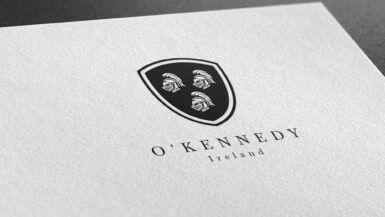The surname Barr finds its roots in various regions across Europe, including Ireland, Scotland, and France. In the Irish context, the name is derived from the Old Gaelic term “Barr,” which means “top” or “tip.” Historically, this could be an occupational name for someone living at the top of a hill or a topographical reference for a location.
Etymology and Meaning
The Irish surname Barr signifies someone who resides on a hilltop or a peak, emphasizing the geography of Ireland, a land known for its lush hills and landscapes. The name highlights the importance of nature in the Gaelic nomenclature system, where many surnames are based on geographical features or habitats.
Earliest Known Usage
The earliest records of the Barr surname in Ireland date back to the medieval period. Manuscripts from the 12th and 13th centuries mention individuals with variations of the Barr surname, suggesting its widespread use across various counties, primarily in Northern regions.
Geographic Distribution
Historically, the Barr surname has had strong roots in the northern counties of Ireland, particularly in Donegal, Tyrone, and Derry. Over time, the name spread to other parts of Ireland, especially as families migrated or sought better opportunities.
Original Geographic Location
While the Barr surname has been widely adopted across many regions in Ireland, its origins are believed to be most strongly linked to the northern territories. The rugged landscape and prominence of hills in these areas align well with the name’s etymological roots.
Migration Patterns
Like many Irish families, the Barrs faced economic hardships, famines, and political unrest that led to migrations both within Ireland and abroad. Many Barr families found themselves setting sail for America, Australia, and Canada during the 18th and 19th centuries, searching for a better life.
Historical Context
Notable Historical Events
The Barr family name has been intertwined with various events in Irish history. Members of the Barr lineage played roles in both political and social spheres, especially during Ireland’s turbulent times.
Involvement in Key Moments in History
Throughout the ages, the Barr name has surfaced in various historical documents related to land ownership, political affiliations, and even as participants in the various uprisings and rebellions that shaped the course of Irish history.
Notable Irish Bearers of the Surname
Influential Figures
Yvonne Barr was an esteemed Irish virologist known for her significant contributions to the field of virology. Born in Portadown, Northern Ireland, her most notable work came in the 1960s when she co-discovered the Epstein-Barr virus alongside Sir Anthony Epstein and Dr. Bert Achong. This virus, found in a line of Burkitt lymphoma cells, was the first human cancer virus to be discovered and is also the cause of infectious mononucleosis (glandular fever). Barr’s diligent research and groundbreaking discoveries in the realm of virology have left a lasting impact on the field, helping further our understanding of the relationship between viruses and cancers.
Variations of the Surname
Spelling Variations
As with many surnames, Barr has seen several spelling iterations over the years. Some of the most common variations include Barre, Bar, and Barré.
Regional Differences
Certain regions, especially those closer to the Gaelic-speaking zones, might have slightly different pronunciations or spellings of the name.
Current Statistics and Distribution
Frequency and Global Distribution
Today, the Barr surname can be found all over the world, a testament to the vast diaspora of Irish descendants. While still prevalent in Ireland, especially in the North, the name has significant populations in the USA, Australia, Canada, and parts of Europe.
Changes Over Time
The distribution of the Barr surname has evolved over the centuries, mirroring the migration and settlement patterns of its bearers. The global spread of the name in the last few centuries particularly showcases the resilience and adaptability of the Barr lineage.
Family Coat of Arms
The Barr family does have an associated coat of arms. Rooted in medieval heraldry, the emblem traditionally showcases a strong fortress or a tower, symbolizing strength, stability, and protection. The exact design and elements can vary based on the specific branch of the Barr family.






Leave a reply